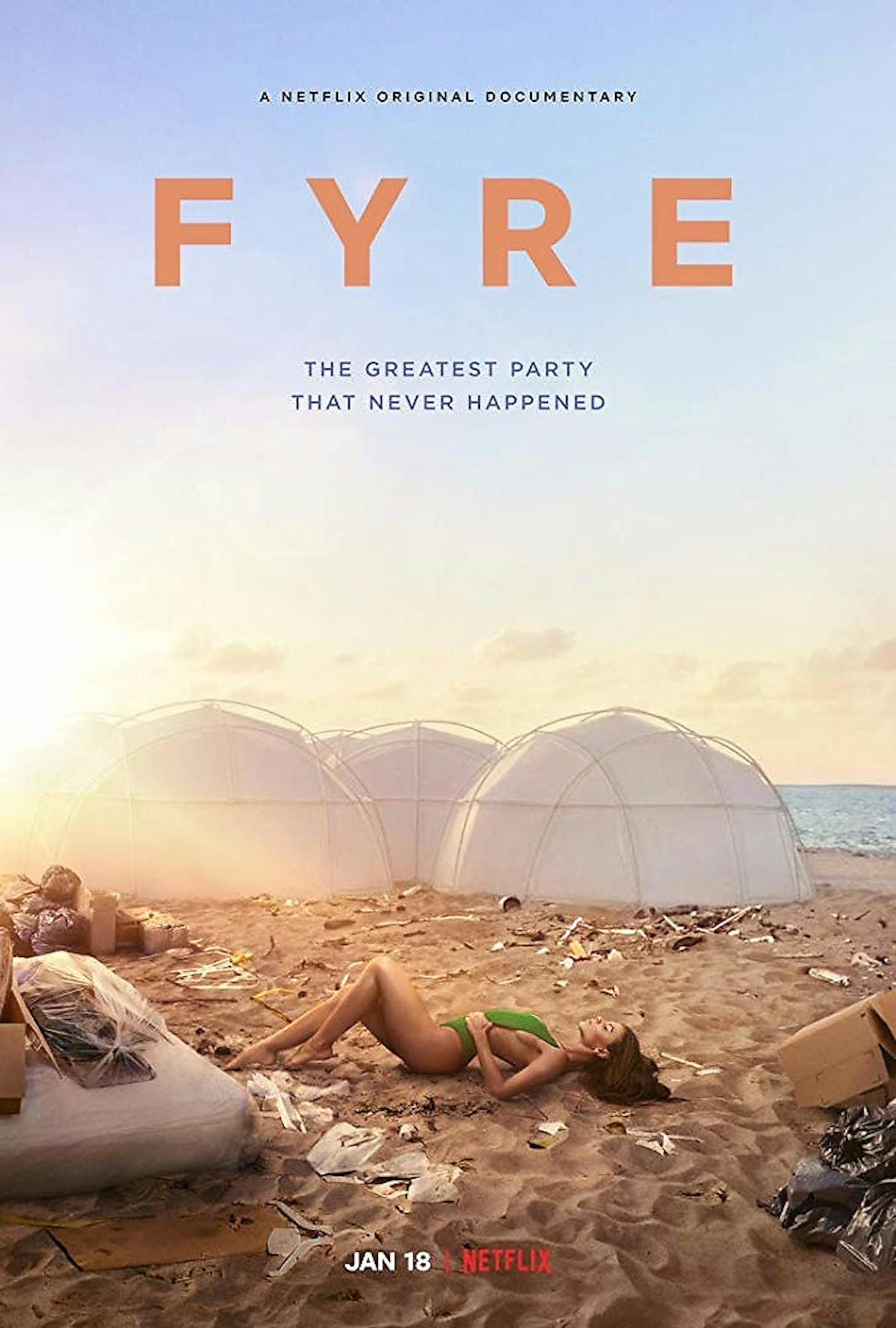Fyre Festival is one of the greatest failures of the social media era. Marketed as a luxury music festival, the idea was to take something like Coachella and up the level of wealth and opulence. The original promotional video showed famous Instagram models such as Bella Hadid and Hailey Bieber enjoying themselves and indicated that perhaps festivalgoers could do the same.
None of what was promised came to pass, though. Attendees arrived to the Bahamas to a gravel lot filled with unfinished FEMA relief tents, port-a-potty bathrooms, and cheese sandwiches that gained notoriety when a disappointed attendee tweeted about them. The situation quickly escalated as people fought for their luggage and tents, and when they tried to leave the island were unable to, getting locked in the airport for hours.
Last Friday, Netflix released its documentary about the infamous Fyre Festival, a luxury music festival planned to take place in the Bahamas in April 2017 that went horribly awry. Hulu, another streaming giant, thought one documentary was not good enough. Without any warning, Hulu released a separate documentary about the festival on their platform a mere four days before Netflix. What better way to beat a tech company than by beating them to something first with a cool press release?
While the Hulu and Netflix documentaries cover the same event, they are remarkably different in style, and their overall scope.
Netflix's "Fyre: The Greatest Party that Never Happened," directed by Chris Smith, tackles the story with a more straightforward approach. Highlighting interviews with people from Fyre Media, the company responsible for putting on the festival, Netflix's documentary provides a clear timeline of events leading up to the festival.
Tension mounts as it becomes clear the organizers will not be able to pull the event off, but continue to try anyway. To its advantage, "Fyre" uses a lot of filmed footage of meetings and events from during the planning process that show just how poorly thought-out this was; the list of tasks horribly mismanaged or ignored is too long to read. By the end, the movie places the blame mostly on Billy McFarland, CEO of Fyre Media, and co-creator of Fyre Festival, though it does not interview him directly. The documentary points out that while some employees continued to follow McFarland’s orders, many were misled or lied to by McFarland. It seems that at the end of the day, the buck stops with the person who committed wire fraud. The documentary's message ends up focusing on the arrogance of the privileged and powerful, giving it a relatively narrow scope.
Hulu's documentary, "Fyre Fraud," takes a much broader swing at the festival and what it implies about modern society. Using cut-aways to pop culture references like "Family Guy" (1998–) and "The Office" (2005–2013), the film often tries to be lighthearted about an event that was disastrous for some. "Fyre Fraud" attempts to build tension just as the Netflix documentary does, but features fewer key members of the event staff or secret footage, it does not depict to the same extent the negligence and horror of the planning and the event.
Although the film spends significant time interviewing McFarland, it places blame on Jerry Media, the media company that helped promote the event, and Fyre employees as well as McFarland himself. The documentary does not try to humanize him, but it attempts to reveal his motivations more holistically. Rather than depicting him merely as a smug jerk who thought he could get away with it, the film portrays him as a compulsive liar.
The documentary argues that the classic American con man has now adapted to the modern internet economy, able to cash in on our obsession with fitting in and our crippling fear of missing out. While that is true to some extent, it is almost too obvious, and finger-wags a lot for a movie that tries to have fun; the word "millennial" is used so frequently, it was like watching some major news channel try to attract young viewers. At one point, a woman argues that social media influencers are "incredibly brave people."
Hulu's best point comes at the end when it reveals that the Netflix documentary was produced in part by Jerry Media, forcing you to question the motives and message of the documentary. But according to rapper Ja Rule, Hulu paid McFarland, who scammed Bahamian day laborers out of hundreds of thousands of dollars, to appear in their documentary.
In the end, Netflix's documentary is the better watch, ethics aside, as it best captures all that went wrong and was wrong with the Fyre Festival itself.
Fyre Festival documentaries show different sides to the same disaster






